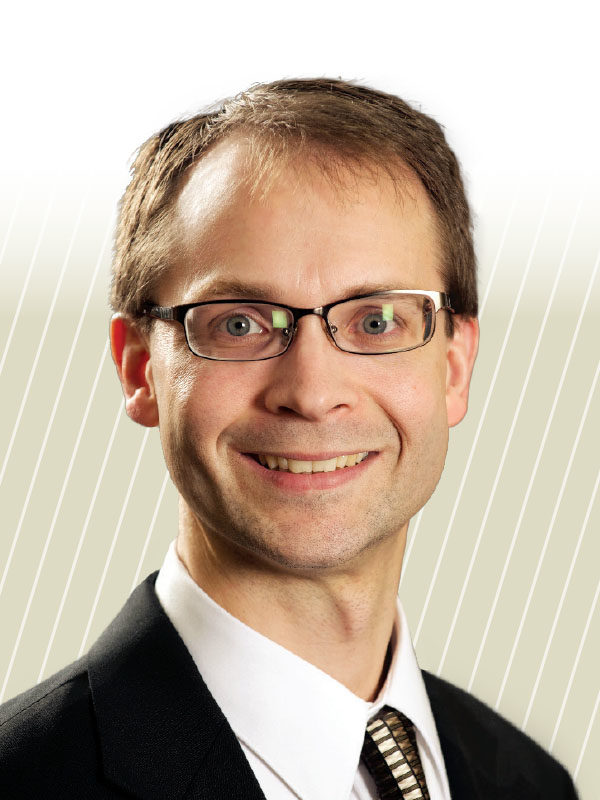Stephen E. Popp wants to be part of the action, whether on the racquetball court in a league he helped form, or while gathering data for decision makers at Cornerstone University in Grand Rapids, Mich.
“I enjoy providing timely, accurate, and relevant information to our executive team members so that they can make good decisions to drive the institution forward,” says the director of budgeting and financial analysis. “It’s great to see the fruits of your labor.”
A native of New York, Popp traveled to Grand Rapids to attend the seminary at Cornerstone and never left. He and his wife, Lori, have four children ranging from 5 to 11 years.
With a bachelor’s degree in accounting, you then pursued a master of divinity degree. Why that choice?
Accounting and the Bible have always gone hand in hand in my life. Accounting is my bread and butter—that’s where I get my paycheck. The Bible is my passion, for it contains the words of life.
As part of your studies, you took a six-week course in Jerusalem. Right?
Yes. During the course, we studied the climate, topography, and regions of Israel, and then associated that information with the events that are described in the Bible. What that trip did for me is put the Bible in color instead of black and white. Now, when I read its passages, the words trigger memories of the terrain, the air, and the smells of the actual locations.
Did you ever think about a career in the ministry?
At one point in time, I was pursuing ordination; however, we were in a position of financial distress here at Cornerstone. Because I was a key player in providing critical reports and forecasts, it didn’t feel right to make a move. Vocational ministry is certainly still on the table.
You’ve now been with Cornerstone your entire career, steadily climbing the ladder. What characteristics or attributes made you eligible for five successive promotions?
Wow. Was it really that many? I wasn’t necessarily seeking promotions. I was simply being faithful in my role. Faithfulness should never be confused with being stagnant and doing the same things the same way. To take our organizations to the next level, we need people with an innovative spirit who are continually looking for ways to do things better.
What are the advantages of staying long term with an institution?
Institutional memory. You know the history of the institution, and what has been tried, what has worked, what hasn’t, and why. New people don’t have that perspective.
The disadvantages?
Breadth of experience.
What is your biggest success in your current position?
I’d say the development of a five-year financial model that synchronizes information from multiple departments—admissions, student financial services, registrar’s office, and so forth. It accurately projects net tuition, and room and board revenue based on historical patterns. The model ties to the general ledger at census dates. It’s been accepted and used by the executive team for all financial decisions affecting the operations of the entire organization.
What mistakes are institutions making in financial planning?
The strategic plan should drive the budget versus trying to fit the strategic plan into the budget. Often, business officers try to squeeze the strategic initiatives into incremental revenue or reallocated funds, rather than saying, “We’re going to fund this initiative.”
Cornerstone is at a pivotal point in its history. We’re now in a financially stable position, with opportunities ahead of us. We need to make sure that we are selecting only those ideas that we can afford to do well.
MARGO VANOVER PORTER, Locust Grove, Va., covers higher education business issues for Business Officer.



